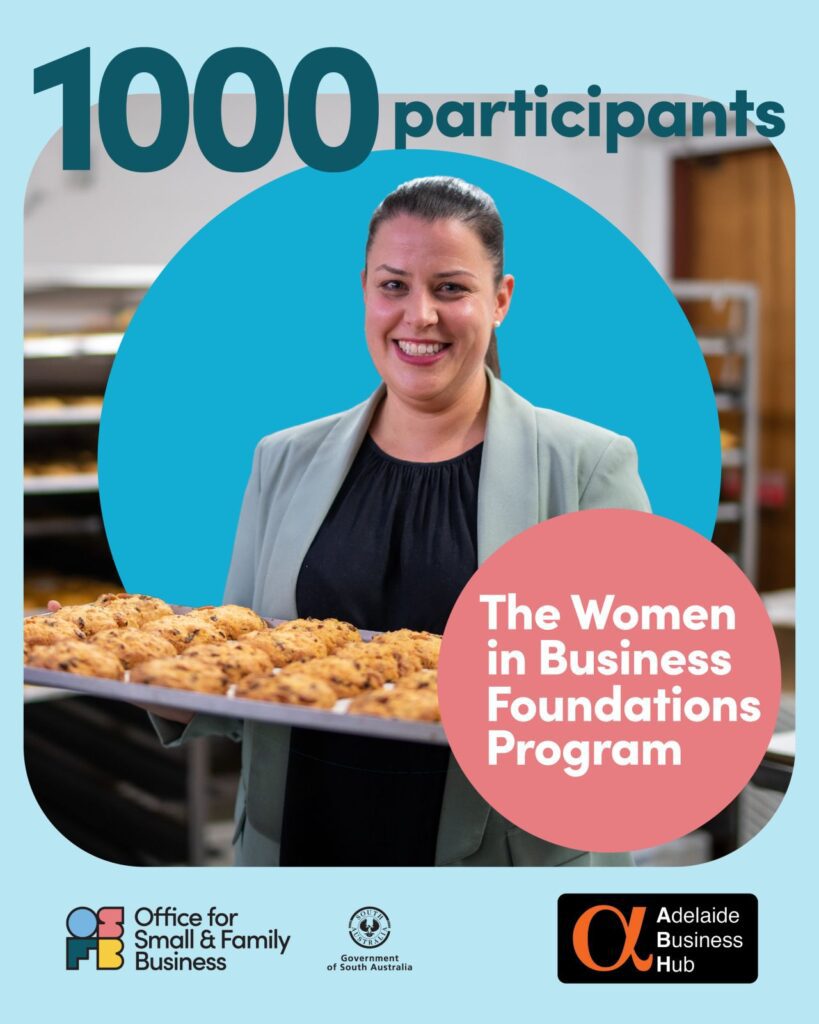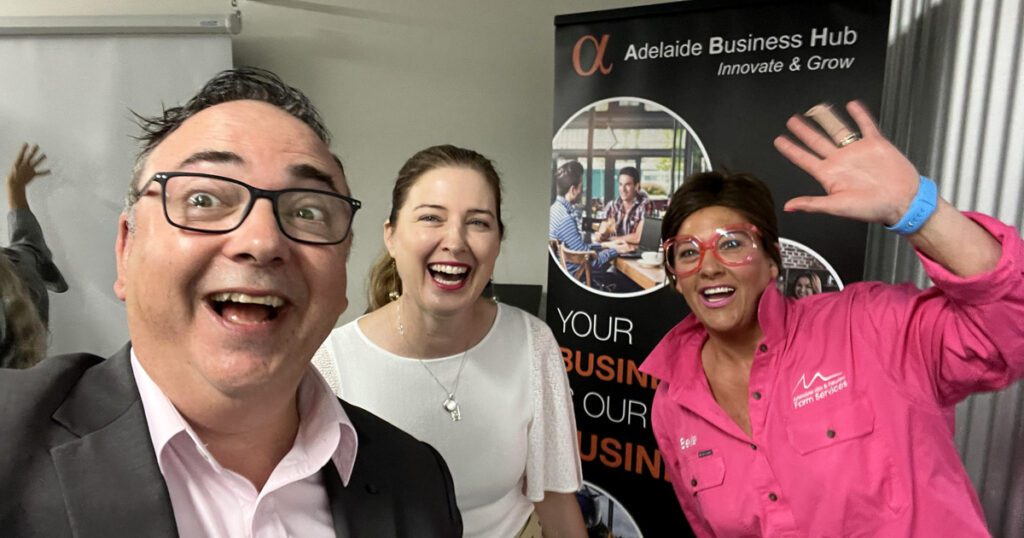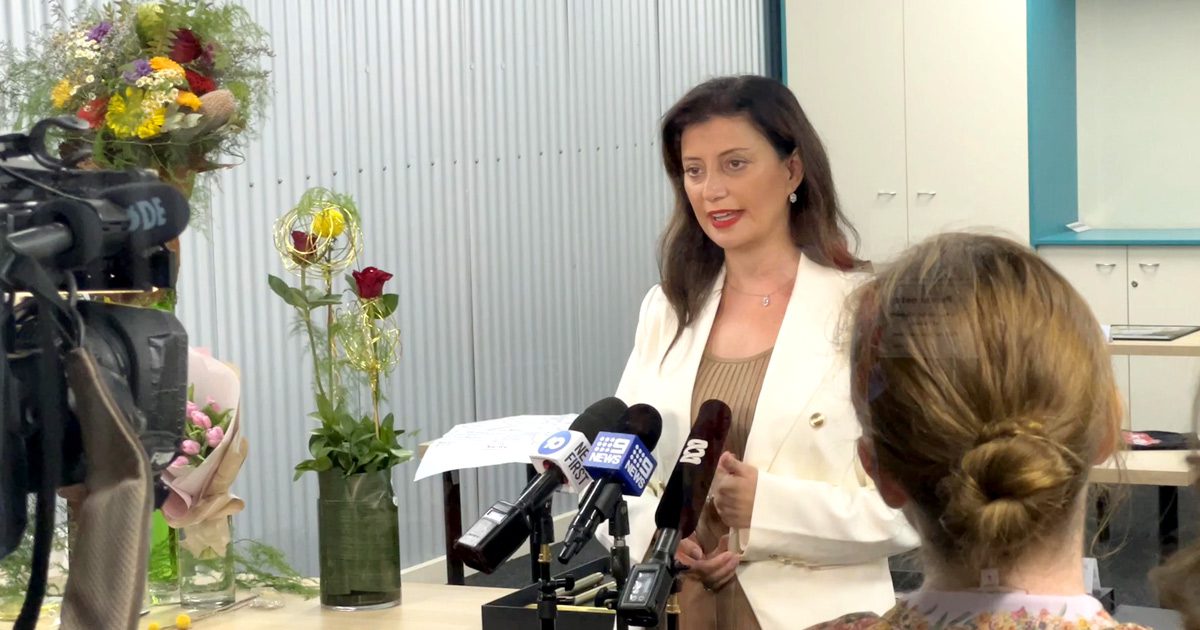How recently have you changed your routine?
How recently have you said "yes" to something, even though there's no clear "what's it in for me" that's obvious?
This reflection, shared originally on FIVEaa with Richard Pascoe last weekend, will remind us all that every little decision we make, in business or life, can have profound and astounding repercussions well into the future.
I've grounded my radio segment into this blog because yesterday, South Australia's Minister for Small and Family Business, the Hon. Andrea Michaels MP, shared a story about how her experience trying to start a business as a woman, while also juggling family commitments, bore fruit years later.
Having made it to the opposition benches in State Parliament, Andrea had time to reflect on her struggles, and devised a program that would help women access advice and support, the likes of which would have made a huge difference to her former self.
The Women In Business program was born when her party won government, and this week we've been able to celebrate the fact that 1000 women have already been able to benefit from access to mentors to help them gain confidence and clarity. It's a thrill to report this because I am one of the mentors entrusted with this work, as captured in our government-supported mentoring page. The program is run by Adelaide Business Hub.

Two Stories To Astound You
The concept of little actions leading to big, and often delayed, outcomes, has been presented by the social scientist and author, Brian Klaas, in his book, FLUKE, in which he argues that even though life is random, it is not meaningless.
In an interview on one of my favourite podcasts, Econtalk, Brian shared a couple of stories that make this point really strongly. After I share them (badly, in a very paraphrased way), I want to share why EVERY single decision we make is more important than we might think.
The first story Brian mentions in his book, takes us back to the 1920s when an American couple decided to have a holiday in Japan. They went to Kyoto and fell in love with the place.
The husband in question was Henry Stimson, who later became the Secretary of War and was involved in the meetings about dropping the atomic bomb.
Kyoto was the desired target, but Stimson twice lobbied President Roosevelt to change it because he loved the place. Hiroshima was bombed instead.
Who would have thought the fate of 100,000 people’s lives was determined by where a couple took a holiday 20 years in the past!
The second story takes us to a little farm in Iowa in the USA in 1905. The family had four young children and one particular day, the wife had a major turn. She flipped. We might call it Post Natal Depression event or similar today.
But on this day, the world became too much and she murdered her children and then killed herself.
The farmer came home to find all his family dead.
A few years later, he remarried, and his great grandson is Brian Klaas, who wrote this book.
So, out of a terrible tragedy, Brian exists.
Every Decision We Make Is More Important Than We Might Imagine
In business, decisions are made every day that have unexpected outcomes; some are good, some are bad.
For example, good old Blu Tack was originally developed in 1969 in the UK through pure accident. The company was actually trying to make a new sealant using chalk powder, rubber and oil.
There’s an audiobook I'll be reading soon, Unreasonable Hospitality, that covers the story of Will Guidara. Will is the former co-owner of legendary New York restaurant Eleven Madison Park.
When he was 26 he took the helm of the struggling two-star brasserie that had never quite lived up to its majestic room. Eleven years later, EMP was named the best restaurant in the world.
And he did it by a heap small decisions that build TRUE relationships between the kitchen and the front of house staff.
He also decided to do incredible acts of hospitality. For example:
- His team surprised a family who had never seen snow with a magical sledding trip to Central Park after their dinner.
- And they filled a private dining room with sand, complete with mai-tais and beach chairs, to console a couple with a cancelled vacation.
Would we be reading about him if it weren’t for those decisions?
What Does This Mean For Us?
In business, it means that when we make a small decision about ethics or quality or relationships – and we stick to it. Things can develop over time. If we look at things that happen, with a glass half full mentality, we might see more opportunities
In life, do we say yes or no to things as a habit? Can you think of something you agreed to do, the outcome of which, surprised you?
A few of my friends/clients/mentors came to the Adelaide Business Hub event this week, even though there was nothing "specific" in it for them. They chanced their arms. They had a good time. They cross-polinated with other people. One even had me crash a photo of her with a minister. Who knows what will follow but fortune does seem to favour the brave (and the active).

In life, these insights from Brian Klaas mean if we do take a risk and go to a party when we feel too shy, we just might be sparking a relationship that could change our lives. As an aside, I went to a fancy dress party not knowing anybody and ended up meeting my wife. And that happened because I asked her to come shopping with me for a pair of Doc Martens. If I had have bought them previously, I might never have had that first date happen …
But the big takeaway was Brian’s insight that if we are ever tempted to look at the randomness of life and say – nothing means anything - then he wants us to think again.
As we learn from his stories, every little thing does count.
So, if you’re feeling pretty lost or bland at the moment, in life or business, remember that we can never tell what the ramifications of our actions will be. And the thing about the word, "actions", is that it's a doing word. What will you do differently this week?
Steve Davis is a mentor through a number of government programs (Women In Business, State, and ASBAS, Federal), as well as via direct mentoring sessions.

